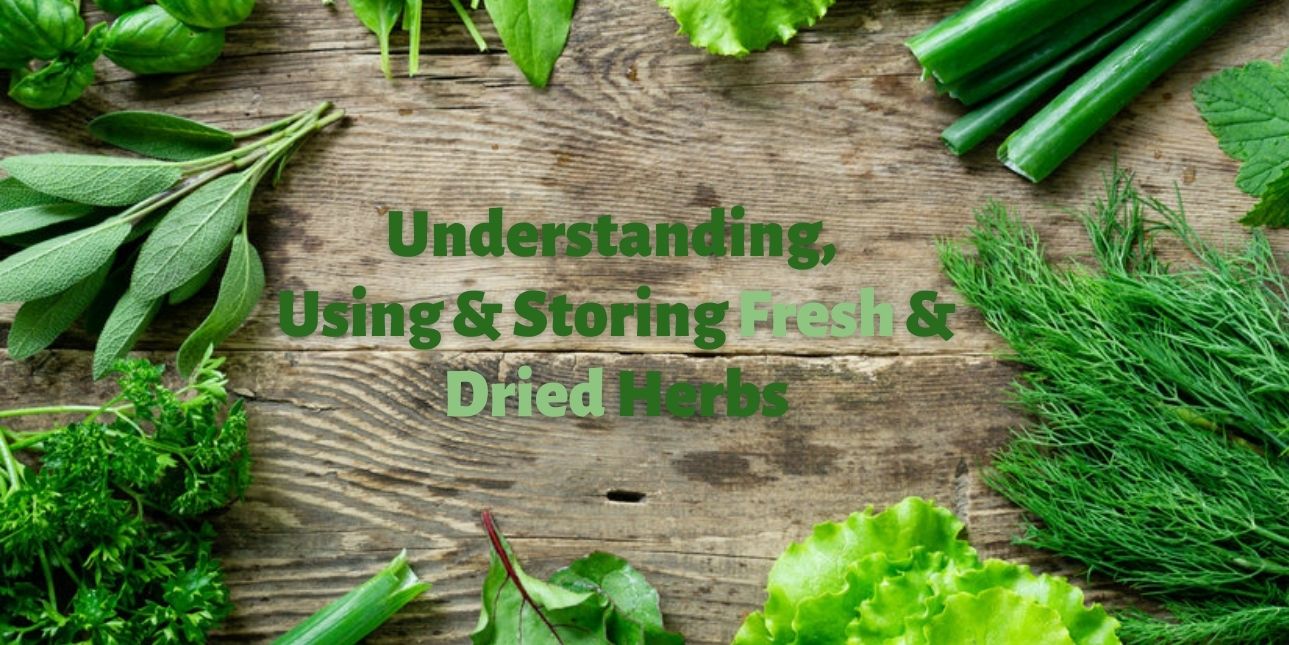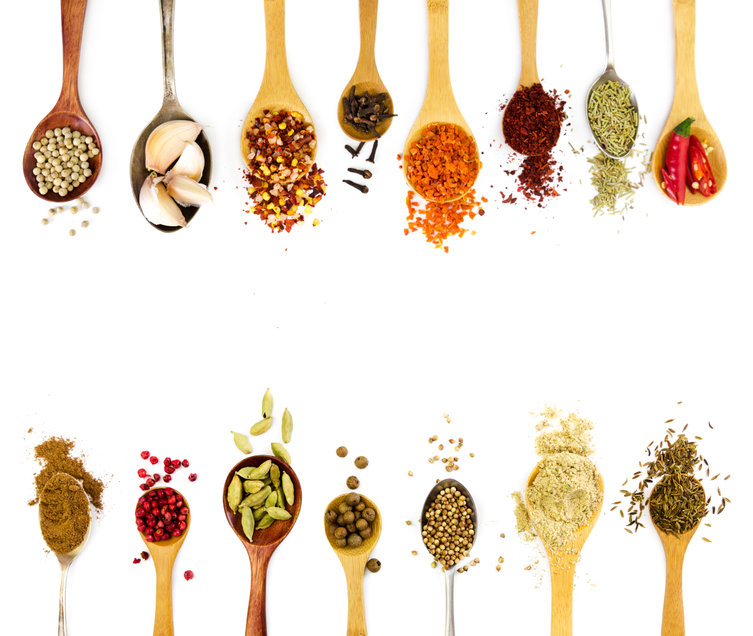Cooking would be bland without different types of herbs to add spice, flavor, aroma, and freshness. Now, most people either use herbs they grow by themselves or ones they procure from the farmer's market. The former can help you cut costs, while the latter can become an expensive affair if you don't store the herbs correctly. Herbs can be categorized as dried or fresh based on their age, texture, and processing. Both of these have different utilities. Understanding the fresh vs. dried herb debate can help you cook better and more economically. Going beyond factors like the potency of aroma and strength of flavor, there also exist differences in the storage of these herbs, something we discuss in detail in the upcoming sections.
Fresh vs Dried Herbs
Fresh and dry herbs are always being pitted against each other in the kitchen. While fresh herbs add a rich, sharp flavor to dishes, dried herbs can help slowly infuse aromas and flavors into a pot of simmering stew, vegetables, or meat. Before understanding why the usage of fresh versus dry herbs is different, let's understand the nuances of the two variants.
- Fresh herbs: Herbs that are usually categorized as fresh are those that taste better when not preserved, dried, or processed. Fresh herbs are of two varieties - soft and hard. While the former encompasses herbs like cilantro, basil, parsley, and chives, the hard herbs include options like rosemary, thyme, oregano, and sage.
- Dried herbs: Dried herbs are those herbs that have been dried either naturally under sunlight or over a heat source to help preserve their flavor and scent. Such herbs are often too potent at the time of harvest, and the processing results in a mellowing of the herb's effect. Dried herbs that have been recently processed might be more potent, whereas dried herbs aged beyond a year might lose flavor.
When to Use Dried Herbs versus Fresh
A simple rule of thumb to follow would be to understand how much flavor you need and at what stage of cooking. If you're looking to cook a dish over the stove for longer than ten minutes, dried herbs are the better choice. The progressive cooking process will cause the flavors within the herbs to leech into the water or the oils in the dish, bringing out flavor and making the dish aromatic. Adding in dried herbs as a garnish will result in a feeble note of the herb due to insufficient time over the heat.
Fresh herbs are best used as garnishes added to the dish when the cooking process is nearing the end. Herbs like cilantro, basil, and chives are tossed and sprinkled once you have taken the pot off the stove. While this is the process for soft fresh herbs, hard fresh herbs like thyme and rosemary show a better effect when they are cooked into dishes. Soft herbs have a more raw and fresh feel, on the contrary, hard fresh herbs show a more mature taste due to the cooking process. Understanding the differences of usage in fresh vs dried herbs can help you make better use of these scented gifts from the garden in your dishes.
How to Store Fresh vs. Dried Herbs
Due to the differences in the processing of dried versus fresh herbs, storage is markedly different as well, albeit with certain commonalities. Many foodservice owners wonder if fresh herbs can be frozen and if dried herbs can be stored in an unrefrigerated space, and the answer to both these questions is in the affirmative. Here's how you can store herbs without ever having to worry about them decaying:
- Storing Fresh Herbs
There are two ways to store fresh herbs. While one involves freezing herbs, the latter just requires a regular refrigerator.
- Regular Storage
A few steps to bear in mind while storing your freshly picked herbs are:
- Wash all herbs with cold water and dry them thoroughly.
- Any water remaining will cause your fresh herbs to decay quicker in the refrigerator.
- You can use a paper towel to dry the herbs completely.
- For leafy herbs like parsley and basil, it's important to cut the base of the leaves from the stem before placing them in an airtight container.
- While herbs like parsley and cilantro can be placed in convenient airtight containers in a walk-in refrigerator, basil is better stored at room temperature.
- Herbs like rosemary, thyme, and oregano are better stored in Ziploc bags placed in a refrigerator.
- How to Freeze Fresh Herbs
An ingenious method to completely preserve fresh herbs is to turn them into frozen herbs. Here's how you can do it:
- Hard fresh herbs like thyme, bay leaf, and rosemary can be frozen without water and stored in a container and placed in a walk-in freezer.
- For soft fresh herbs, the better solution is to freeze them using water. Snipped leaves of herbs like parsley, cilantro, mint, and chives can be placed in ice trays, followed by adding water to the trays. The frozen herbs can then be used at convenience.
- Herbs like basil that do not refrigerate well can be frozen using oil. This method can also be applied to hard herbs like thyme. The herbs can be blended with a quarter cup of olive oil into a fine paste before being loaded into ice trays and frozen. The cubes can be added directly to dishes that require a fresh garnish.
- Storing Dried Herbs
Here are some tips to help you make your dried herbs last longer:
- Be sure to store dried herbs in a spot completely lacking in moisture. Moisture can create rot and decay in dried herbs.
- Most dried and different types of herbs do well when stored whole. They can be powdered when you require them.
- Dark-colored glass jars and bottles are best suited for dry herb storage. Dried herbs do not take well to oxygen and sunlight.
- Try to store dried herbs in a dry and dark corner of the kitchen to maximize their shelf life. Storing them in the refrigerator might do the opposite due to moisture.
The culinary space offers a wide variety of spices and herbs to choose from. Be sure to store and use them accordingly to provide the best taste and experience to your patrons.














